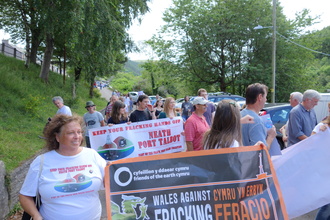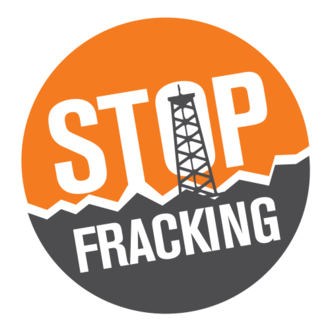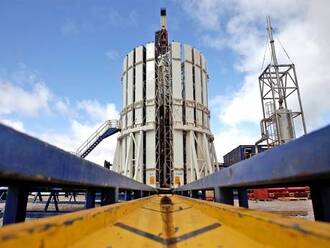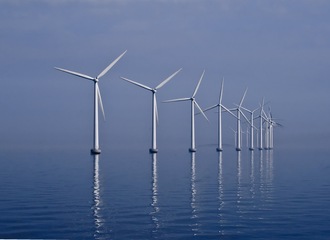-
SAY YES! TO A WIND TURBINE ON DRUMMAU MOUNTAINThe global demand for electricity is projected to grow by nearly 80 percent between now and 2030. The over-reliance on fossil fuels and its environmental cost combined with wind energy becoming increasingly cost competitive rests the case firmly with wind. A modern wind turbine produces 180 times more electricity at less than half the cost per kWh than the most efficient turbine 20 years ago. This staggering statistic points to wind energy’s coming of age and its onward journey of promise into a reliable and cost competitive, renewable energy source. The maturing of the wind industry has led to more efficient value chains and growing economies of scale, and can already compete with coal and gas in certain circumstances. As the price of emitting Co2 rises, the relative cost of wind power has improved even more. Neath needs to be in a position whereby it produces its own energy - both from sustainable sources and with an ability to sell it to the National Grid when there is a surplus. Drummau Mountain is the ideal location for wind turbines, as are most hills and mountains within the locale, like Mynydd Marchywel, for example. We call on Neath Port Talbot Council to continue to explore and build renewable energy projects across the county borough, without prejudice, and for the common good.246 of 300 SignaturesCreated by Neil Wagstaff
-
Stop Fracking in South Bristol and North SomersetThe government has already issued Petroleum Exploration and Development Licenses to fracking companies. These licenses cover the whole area surrounding Chew Magna and the reservoirs which provide Bristol’s water supply and they extend as far as Parson Street in Bedminster ! At present fracking companies need to lease land (or seek agreements to drill) from public or private landowners and they need to obtain planning permission from the local council. However, the coalition government has already drafted an energy bill which proposes abolishing the requirement for planning permission. UK Methane has put on hold its plans to extract shale gas using fracking close to the Hicks Gate roundabout on the A4 near Keynsham and the company has relinquished the license covering Chew Magna (PEDL 226). However, that work may start again at any time and the license can be renewed or taken up by another fracking company. http://www.frackfreesomerset.org/ Why should we be concerned? Fracking uses huge amounts of the local water supply and toxic chemicals such as Benzene, Toluene, Phenol and Formaldehyde to fracture impermeable rock and release shale gas or to obtain methane from coal seams underground. It involves drilling first vertically and then horizontally for up to one kilometre or more in both directions. Numerous wells are drilled to ensure continuing production, and this not only disfigures the landscape but also carries the risk of long-term contamination of water sources because all wells leak and degrade over time. Toxic slurry stored in holding ponds also causes air pollution and contaminates the land, especially during heavy rain or flooding. A report for the U.S. Environmental Protection Agency states that exposure to chemicals used in fracking may result in headaches, nausea, insomnia, gastric disturbances, blurred vision and blindness in humans; may affect the brain / nervous system, the kidneys and the immune and cardiovascular systems, and may cause cancer (Colborn, T., Kwiatkowski, C., Schultz, K, and Bachran, M. 2011. Natural gas operations from a public health perspective. Human and Ecological Rick Assessment, 17: 1039-1056. In the UK, Medact has described fracking as an “inherently risky” practice, and 18 leading health professionals state: “The arguments against fracking on public health and ecological grounds are overwhelming. There are clear grounds for adopting the precautionary principle and prohibiting fracking” (British Medical Journal (1st April 2015) Health Professionals call for urgent halt to fracking because of public health concerns). Fracking can also cause subsidence and has been associated with earthquakes in Lancashire. Moreover, it makes climate change worse by increasing greenhouse gas emissions. To understand what fracking could mean for individual households, look at the film Gasland on YouTube. You could also take a look at The Truth Behind the Dash for Gas, a DVD produced by Frack Free Somerset.813 of 1,000 SignaturesCreated by Howard Purse
-
Demand an outright Ban on Fracking in Northern IrelandFracking causes devastating effects, affecting every sector of public life, from health to agriculture, to tourism and the environment. Places such as the USA, or Australia where Fracking has already happened have seen a complete degradation of normal life; taking a shower brings your whole body out in a painful red rash, you can light your water on fire, you can't sleep for the noise of the machines and worse, the division of communities due to the manipulation of the Fracking companies. The effects of Fracking are truly endless, with long term effects still being uncovered. We want a ban on Fracking because we love our families, our friends and where we live. Many people have become seriously ill when Fracking companies have started drilling near them. There are many stories of heartache, from someone's wife who has cancer to a mother's young son with severe asthma. Under no circumstances is it acceptable to put communities through the ordeal of Fracking for the sole reason of extracting fossil fuel from the ground. With the effects of the Climate Change becoming worse, this is not the time to invest in Fossil Fuels. If we do not change our habits the repercussions of Climate Change will affect every single person on this earth. We should therefore be investing in renewable energy, not in polluting practises such as Fracking. By signing this petition we make it the duty of our politicians to ensure that Climate change is curbed and Fracking never happens in Northern Ireland.802 of 1,000 SignaturesCreated by Maeve McCann
-
Stop Fracking CensorshipThe Department for Environment, Food and Rural Affairs (DEFRA) has heavily censored the only public version of the Government’s report ‘Shale Gas Rural Economy Impacts’. Although the Government has repeatedly said 'the public should be given all the facts’, this report was redacted 63 times, including the section on how fracking could affect house prices. DEFRA claim this was best for ‘public interest’. Within the next couple of weeks MPs will vote on the Infrastructure Bill, which proposes controversial changes to our Trespass Laws that will erode our land rights, and pave the way for fracking. Two Tory MPs have already urged David Cameron to release the report in full. Other MPs have also asked to see the complete report, yet still it remains redacted. It’s crucial that what’s hidden in this report is released before the Infrastructure Bill is finally voted on in Parliament, so that MPs can properly understand impacts that fracking will have on our house prices and our communities. We all deserve to see the censored material in this important document that our government is keeping from us.5,430 of 6,000 SignaturesCreated by Talk Fracking
-
No New Pylons in the Lake DistrictDuring the autumn of 2014 National Grid ran a consultation called "North West Coast Connections" asking members of the public how it should get power from the proposed new Moorside power station in west Cumbria into the high voltage transmission grid. On 17 June 2015 – despite widespread opposition - National Grid announced the decision to take forward its preferred option. This would see huge new pylons and overhead lines in the Lake District National Park and other sensitive protected areas, causing massive damage to the beautiful landscape and wildlife. At 50m tall, the new pylons would be twice the height of existing pylons and more than twice as wide. They would break the skyline from many viewpoints and create a permanent eyesore. National Grid provided an alternative offshore option for the public to comment on. The offshore route would take the powerline underground and then out to sea, where cables laid in the sea bed would link it into the national grid near Blackpool. National Grid has always accepted that this route is feasible, but it is not the route it wanted to take . In a previous public consultation in 2012, there was overwhelming support for the offshore route because it had the least impact on the Lake District. Although the majority of respondents to the 2014 consultation also supported the offshore option, National Grid has disregarded the wishes of the public. A number of stakeholder organisations that supported the onshore option did so with the proviso that National Grid takes satisfactory measures – such as routing cables underground - to mitigate the effects of pylons in sensitive areas. It now appears likely that adequate mitigation will NOT be offered. National Parks were created in order to protect beautiful areas for the people of Britain; we do not want to see 27 miles of 50m tall pylons (connected by multiple conductor wires) in and next to the Lake District National Park. We want your help to persuade National Grid that the offshore option IS the best route because it would both secure our future electricity supplies AND protect the Lake District’s wonderful landscapes. As well as signing the petition, please also consider joining Power Without Pylons (membership free) and Friends of the Lake District. You could also write to newspapers, newsletters and magazines; and if you live in an area likely to be affected, contact your MP and raise concerns with your parish council. As well as this petition, we are currently running a write-in campaign to encourage members of the public to contact National Grid, the MP and Liz Truss the Environment Secretary directly to express their concern and objections to taking the pylons onshore and not considering undergrounding in spite of the damage that pylons would do to the Lake District's landscape. You can access the campaign here: www.saynotopylonsinthelakedistrict.org.uk For more information: www.friendsofthelakedistrict.org.uk/News/response-to-national-grids www.powerwithoutpylons.org.uk www.northwestcoastconnections.com Note: this petition was initiated by Kate Willshaw of Friends of the Lake District ahead of the "North West Coast Connections" consultation, which has now ended. Kate has invited Power Without Pylons to continue to promote it.1,888 of 2,000 SignaturesCreated by graham barron
-
Declare Neath Port Talbot a Frack Free ZoneNeath Port Talbot has for centuries been an industrial area but now in the 21st century, the surrounding countryside is starting to return to its former glory with much of the area now supporting a thriving tourist industry. The people of Neath Port Talbot would like to keep it this way and do not want any form of shale gas or oil extraction by any method whatsoever, namely by Hydraulic Fracturing (Fracking), Coal Bed Methane or Underground Coal Gasification.2,171 of 3,000 SignaturesCreated by Neale Evans
-
Stop Fracking: Gloucestershire County CouncilHorizontal hydraulic fracturing, ‘fracking’, is a way of extracting oil and/or gas. Water, sand and toxic chemicals are injected at high pressure into underground rocks to shatter them. This releases the gas/oil which can be collected. The oil and gas industries claim that fracking will increase UK energy security and create jobs. But the amount of gas or oil estimated to exist in shale/coal bed formations and the amount that can be extracted are very different. The evidence in the US is that - contrary to extravagant industry claims of a century of natural gas - fracking wells are already dropping in production. It is an extremely expensive extraction method that cannot provide a long-term return. It cannot create either energy or job security. However, fracking is not just expensive economically, but more disturbingly in the costs to the environment and human health as well as that of livestock. There have been many instances in the US of ground and surface water contamination as a result of fracking activities, some of which have caused drastic health problems and even necessitated state or corporate provision of alternative drinking water. Access to drinkable water is one of the key achievements of developed nations. Water Aid states that 768 million people worldwide - roughly 1 in 10 - still don't have access to safe water. Do we in Britain, one of the most advanced nations in the world, want to risk members of our own population joining that number? Absolutely not. But that's exactly what fracking would risk. All oil wells are concrete-and-steel constructions that will eventually fail, and even in the short term, fracking wells have an estimated 6% chance of a fault of some kind (industry estimate). The specifics of local geology and underground watercourses cannot be reliably predicted or legislated for. For a fracking site to be profitable, hundreds of wells are required. The maths - and the logic - isn't difficult. This practice is simply too dangerous, and the return too uncertain, expensive and limited, to justify. As for jobs, they go where the political will and the entrepreneurs go. The oil and gas industry would have it be a choice between environment and jobs. This is misleading and profoundly unhelpful - the Council and indeed the Government should support job creation in the renewables industry which (unlike the oil and gas industry) is actually in steady growth, and will reduce carbon emissions... We therefore call on the council to preserve the quality of life of Gloucestershire's residents and those of the UK in general, and reject any and all planning applications for fracking including Coal Bed Methane and Underground Coal Gasification applications, whether now or in future.2,305 of 3,000 SignaturesCreated by Jojo Mehta

-
Ban fracking in HerefordshireThe damage to the environment and economy of areas where this has been allowed is well documented. Poisoning of the water supplies, health issues, earthquakes are not imaginary and if you want an economic reason, property values can drop by 30% and you can find yourself unable to get house insurance. An estate agent in Poulton le Fylde, near one of Cuadrilla’s drilling sites, told the Observer "There are a lot of properties coming on to the market, and some of the owners are saying they want to get out before prices start dropping” Other local estate agents have said sales have fallen through because properties are near a fracking site. Herefordshire is an agricultural area and a tourist attraction, being an area of outstanding beauty. Experience in the US shows that fracking can create problems for local agriculture, including the loss of agricultural land, and concerns about water resources. Jumping forward to September 2015, you will have heard on BBC Hereford & Worcester that a new round of applications were to be allowed in the South of Herefordshire in the Wye Valley Area Of Outstanding Natural Beauty and in autumn of 2016 were issued. Thanks largely to public resistance accompanied by adverse oil prices South West Energy handed back the licences but made clear that this is a 'temporary' reprieve and they would be back, The fight continues ... Meanwhile a documentary is in editing stages at present. Thanks to those who have caught up with the plot and all the new additions to signatures. . Further info: Nationwide Mutual, the largest US farming insurance underwriter, announced in 2012 that “from an underwriting standpoint we do not have a comfort level with the unique risks associated with the fracking process to provide coverage at a reasonable price." What would be the impact on tourism of hundreds of shale gas wells and associated infrastructure? In Australia, local tourism bodies are among the opponents of unconventional gas developments. The Chartered Institute of Water and Environmental Management has said that the UK should “not encourage fracking as a part of our energy mix until there is more evidence that operations can be delivered safely, that environmental impacts are acceptable and that monitoring, reporting and mitigation requirements are comprehensive and effective. Mark Menzies, the Conservative MP whose constituency covers much of the area in Lancashire where Cuadrilla has been active, has said “I do not believe that the regulatory system is robust or transparent enough to instill public confidence should permission be granted to the industry.". Having fought off a previous attempt by South West Gas & Oil, we achieved a temporary stay, but with current news 2 years later in 2018 we can no longer consider ourselves safe we must raise attention to the fact that we are in an area where previous attempts have taken place. Go tell your friends again that this is no longer a distant threat but a very real one right on our doorstep . For recent updates watch our associated facebook pages. Here is an explanation for beginners: https://www.facebook.com/frackfreeshires/videos/1971358513123509/1,812 of 2,000 SignaturesCreated by John Perkins
-
Support Dorset & Hampshire's Offshore Wind FarmAs you are probably aware; Navitus Bay Wind Park (1) will be located off the Dorset and Hampshire Coasts, to the west of the Isle of Wight, and also visible from Bournemouth, Poole and Swanage. I understand this development could produce the equivalent energy to power 800,000 homes and reduce carbon emissions by up to 1,125,000 tonnes per annum. This will be a tremendous contribution to our country's energy needs and carbon reductions. It will also help towards our renewable energy target of 15% which in the past few years has been behind plan and behind the progress rates of many other EU nations (2). I am very concerned however that a small group of local activists are using information that has little to no scientific backing to discredit this development and are creating fears about the impact on tourism and jobs in the area. I would urge you to balance any of their views against the report produced by The University of Edinburgh, presented to a Committee of the Scottish Parliament (3) in which there is clear consensus that there has been no measurable economic impact, either positively or negatively, of wind farms on tourism and concludes that “while some strongly held localised and anecdotal opinion exists, the Committee has seen no empirical evidence which demonstrates that the tourism industry in Scotland will be adversely affected by the deployment of renewable energy projects, particularly onshore and offshore wind” I appreciate the turbines will be visible from the coast on a clear day but believe this to be a small and perfectly acceptable compromise for the benefits delivered. Furthermore, I personally confirm that this development will not any way restrict the frequency or manner in which I enjoy the beach and coastal areas in the effected locations. 1. www.navitusbaywindpark.co.uk 2. http://ec.europa.eu/energy/renewables/reports/doc/com_2013_0175_res_en.pdf 3. www.scottish.parliament.uk/S4_EconomyEnergyandTourismCommittee/Reports/eeR-12-07w-r.pdf1,793 of 2,000 SignaturesCreated by Mark Chivers
-
STANDING CHARGESIt is an ongoing disgrace and action needs to be taken urgently! People are struggling as it is, with all the other bills they have to pay every month. The energy companies probably take the most. Many parents and elderly, as well as the infirm across the country, have to decide every day. Do I have enough money to put the heating on for an hour or two, or decide if I can afford to put food on the table? To decide to eat or heat in this country in this day and age is nothing more than a disgrace! We have just had fourteen years of heartache and depression. We all need some help, some more than others especially now! Hopefully, we can get now under the new Labour government!!!1 of 100 SignaturesCreated by PHILIP MARSHAM
-
REGULATE ENERGY COMPANY PROFITWe all depend on energy in every aspect of our business and personal lives. However it needs to be affordable and without sudden, unexpected and unacceptable profiteering price rises.2 of 100 SignaturesCreated by David Colla
-
District heating paymentsMany people are getting help with normal heating bills but we, on district heating are getting nothing. We cannot afford a 300% rise and it will cause health and financial problems to the most vulnerable1 of 100 SignaturesCreated by Steve Weeds-Otter
Hello! We use cookies to improve your experience by providing insights into how the site is being used. Find out more.
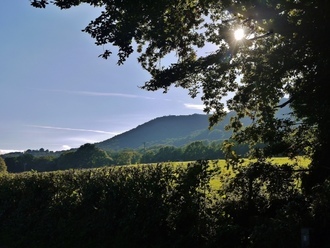

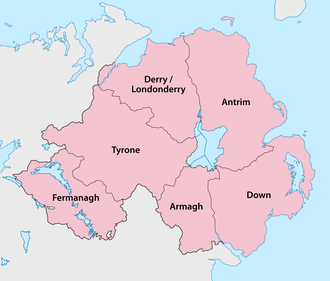
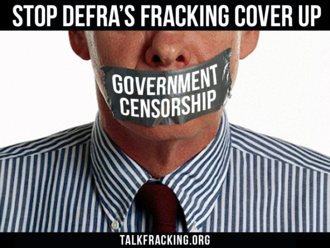
.JPG)
